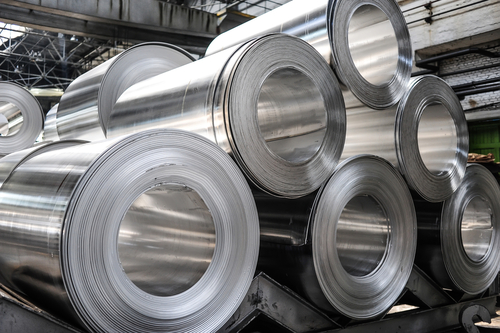
The Biden administration on Tuesday said it plans to maintain current tariffs and increase others on $18 billion in imports from China under Section 301 of the Trade Act of 1974.
Many of the tariff increases — which are substantial and will take effect before the end of the year — are designed to encourage the elimination of China’s unfair technology transfer-related policies and practices that continue to burden U.S. commerce and harm American workers and businesses, according to U.S. Trade Representative (USTR) Katherine Tai.
“As the president recognizes in his memorandum, while the tariffs have been effective in encouraging the People’s Republic of China to take some steps to address the issues identified in the Section 301 investigation, further action is required,” Tai said in a May 14 statement.
The newly released presidential memorandum is based on findings from the USTR’s four-year investigation focused on “China’s Acts, Policies, and Practices Related to Technology Transfer, Intellectual Property, and Innovation.”
Also known as the Section 301 investigation, the USTR received roughly 1,500 written submissions that informed its review. Then, the USTR and the Section 301 Committee prepared a comprehensive report on the effectiveness of two trade tariffs previously taken against China, other actions that could be taken, and the effects of such actions on the U.S. economy, including consumers.
After considering the report’s findings, President Joe Biden determined that while Section 301 tariffs were effective in encouraging China to take positive steps in addressing the issues identified in the Section 301 investigation — such as certain revisions in its foreign investment and administrative licensing laws — China’s actions still don’t represent a systematic and sustained response to the issues raised in the investigation, the memo says.
China also hasn’t eliminated many of the technology transfer-related acts, policies, and practices at issue, nor removed the burden or restriction on U.S. commerce, according to the memo. And the country “continues to aggressively attempt to acquire and absorb foreign technology and intellectual property, particularly through cyber intrusions and cybertheft, adding to the burden or restriction on United States commerce,” the memo says.
Among other findings, the memo also determined that additional Section 301 tariffs would provide incentives for China to eliminate such issues.
“For years, the Chinese government has poured state money into Chinese companies across a whole range of industries: steel and aluminum, semiconductors, electric vehicles, solar panels — the industries of the future — and even critical health equipment, like gloves and masks,” Biden said during a press conference held yesterday in the Rose Garden.
China heavily subsidized all these products, pushing Chinese companies to produce far more than the rest of the world could absorb and then dumped the excess products onto the market at unfairly low prices, subsequently driving other manufacturers around the world out of business, said the president.
The prices are unfairly low, he said, because Chinese companies don’t need to worry about a profit because the Chinese government subsidized them and subsidized them heavily.
At the same time, Biden added, the Chinese have relied on other anti-competitive tactics as well, like forcing American companies to transfer their technology in order to do business in China.
“When you make tactics like these, you’re not competing,” Biden said. “It’s cheating. And we’ve seen the damage here in America.”
In response, the U.S. this year will increase rates for several tariffs, including: a 25-percent rate increase on Chinese steel and aluminum products; a 100-percent increased rate on electric vehicles (EVs) made in China, a 25-percent hike on EV batteries from China, and a 25-percent increase on the critical minerals that make EV batteries; a 25-percent increase on solar cells; and a 50-percent ramp up on syringes and needles, plus a 25-percent increase on face masks.
Biden pointed out that the U.S. is making major investments in clean American steel and aluminum — clean because of the way it’s manufactured in America, where it emits half as much carbon as steel made in China.
U.S. Steel commended the increased tariffs, and reinforced its commitment to mining, melting, and making steel in America.
“We applaud the president’s actions to aggressively counter China with higher tariffs on Chinese steel and other critical minerals,” the Pittsburgh-based company tweeted yesterday on X, formerly Twitter. “Forging resilience against threats from China is critical for American jobs and American supply chains.”
In 2025 and 2026, there will be more rate increases, such as for medical gloves, natural graphite, and semiconductors, according to the USTR.
“When we hold trade cheats accountable, we put American workers in the best position to outcompete anyone in the world,” U.S. Sen. Bob Casey (D-PA) said. “I have urged presidents of both parties to maintain and increase Section 301 tariffs to level the playing field for Pennsylvania workers and protect our jobs and our national security.”
Scott Paul, president of the Alliance for American Manufacturing (AAM), said that raising tariffs on Chinese imports is “absolutely the right thing to do for America’s future.”
“AAM supported the original initiation of Section 301 tariffs and urged this administration to both extend and enhance the relief measures,” Paul tweeted yesterday on X. “Decades of unfair trade by the People’s Republic of China have devastated American communities and weakened our economic security.”